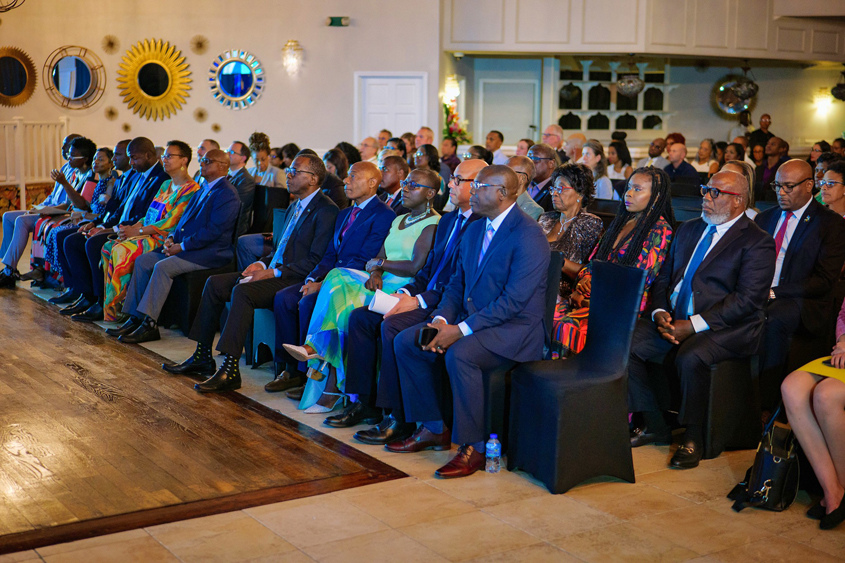(Nation News) The Caribbean is being urged to do more to drive global responses to climate change.
Simon Stiell, who is Executive Secretary of the United Nations Framework Convention on Climate Change, challenged the region to do so as he delivered the 23rd William G. Demas Memorial Lecture at Sandals Grande St Lucian on Tuesday night.
The Grenadian believed the Caribbean was “uniquely placed to bring bridging, solutions, and a pathway forward”.
“At school, we’re all taught an eye for an eye makes the whole world go blind. But unfortunately, this is where we find ourselves in our drive for collective progress on climate action,” he said at the lecture, one of the events at the Caribbean Development Bank’s 53rd annual meeting. A section of the audience at the 23rd William G. Demas Memorial Lecture. (Picture courtesy Caribbean Development Bank)
A section of the audience at the 23rd William G. Demas Memorial Lecture. (Picture courtesy Caribbean Development Bank)
“There are countries within the negotiating arena who see it as their role to hold up progress in negotiations and refuse to take action at home until sufficient finance is delivered to support it. There are others who refuse to provide all the finance promised until they see meaningful action is being taken elsewhere,” Stiell asserted.
“Here’s the thing, action has to be taken and it has to be taken by all now. To take action you need finance as an enabler. So both of these things have to happen. And they both have to happen right now.”
He stressed that climate change “is not a North versus South issue, but we need a proactive bridge between the two voices which can champion a progressive third way, a third way which delivers for those that need it most”.
“That means action and provision of support to enable further action in an upwards iterative spiral, voices which hold space for sensible and progressive action,” Stiell told the audience.
He saw the Caribbean as having the ability to “build common ground across issues, a package of action, which will ultimately deliver for all of us”.
“In the Caribbean, we’re uniquely placed to understand what this needs to look like, having experienced climate impacts for generations, consistently responding to change by building up communities around principles of growth, global integration and sustainability with one eye constantly on self sufficiency,” Stiell said. (SC)



